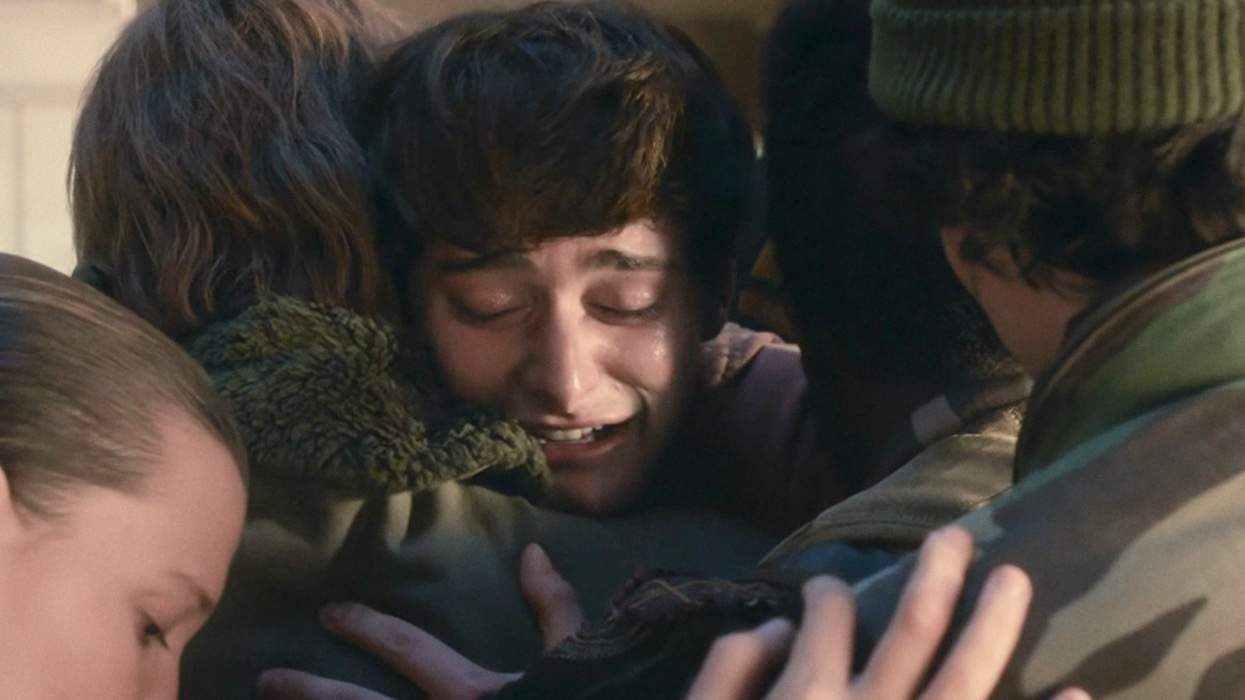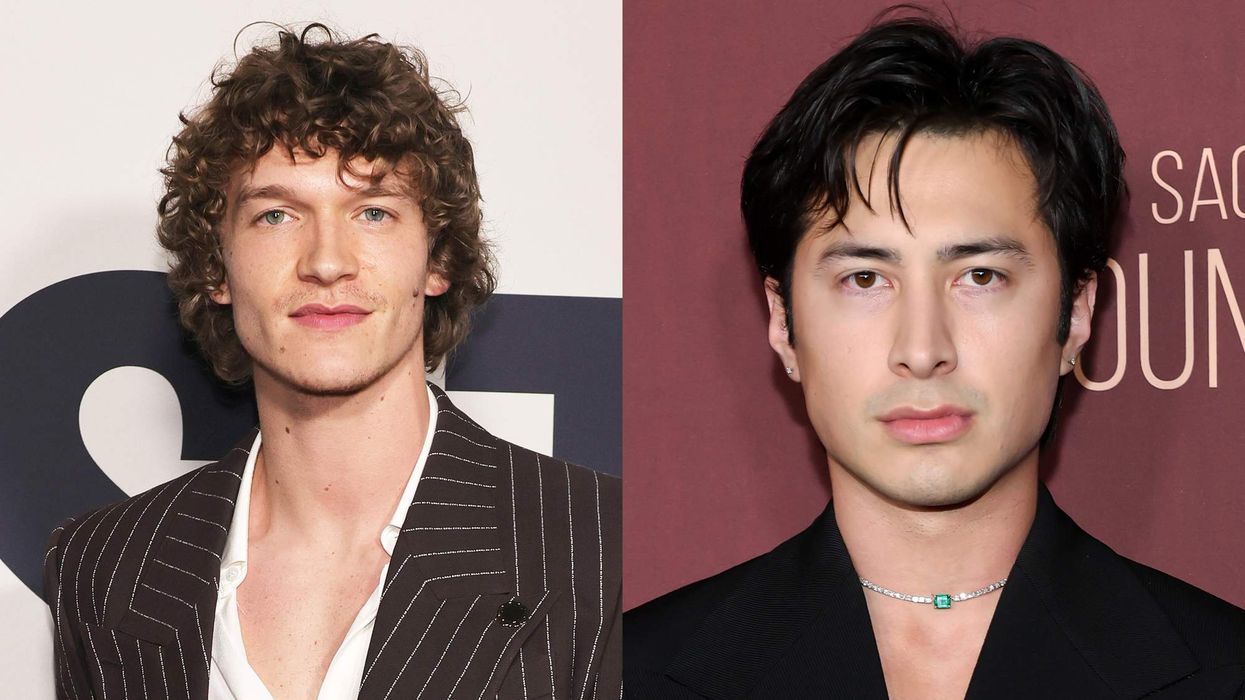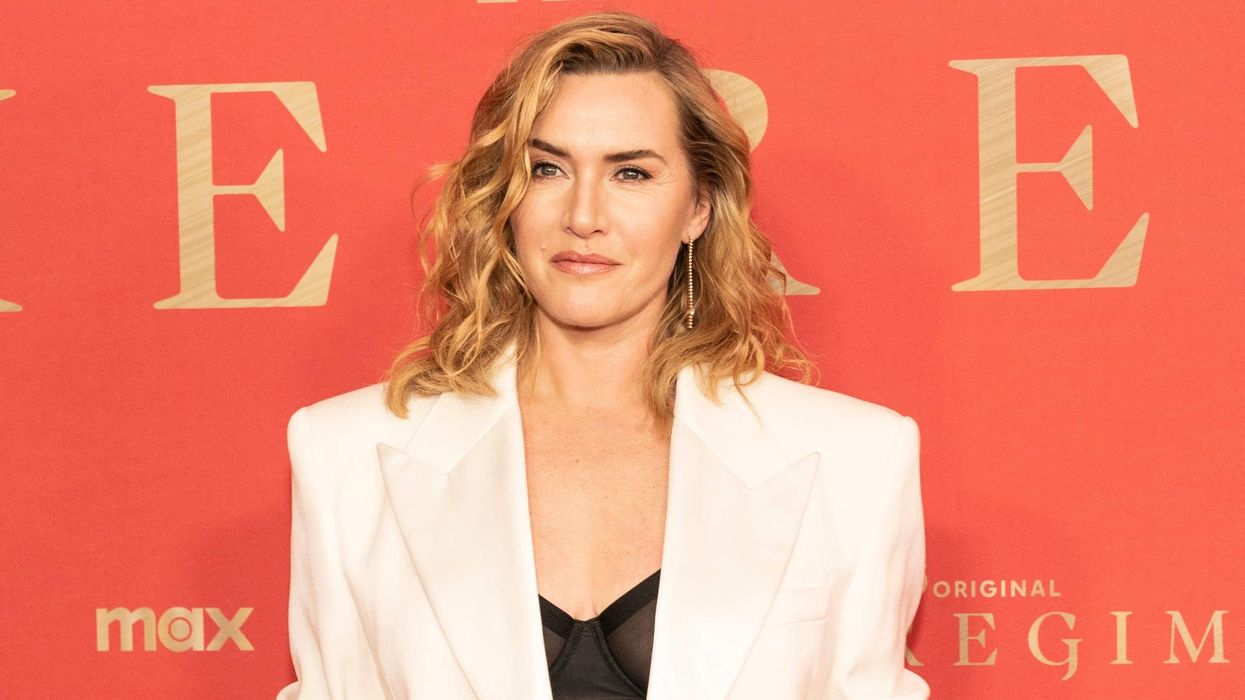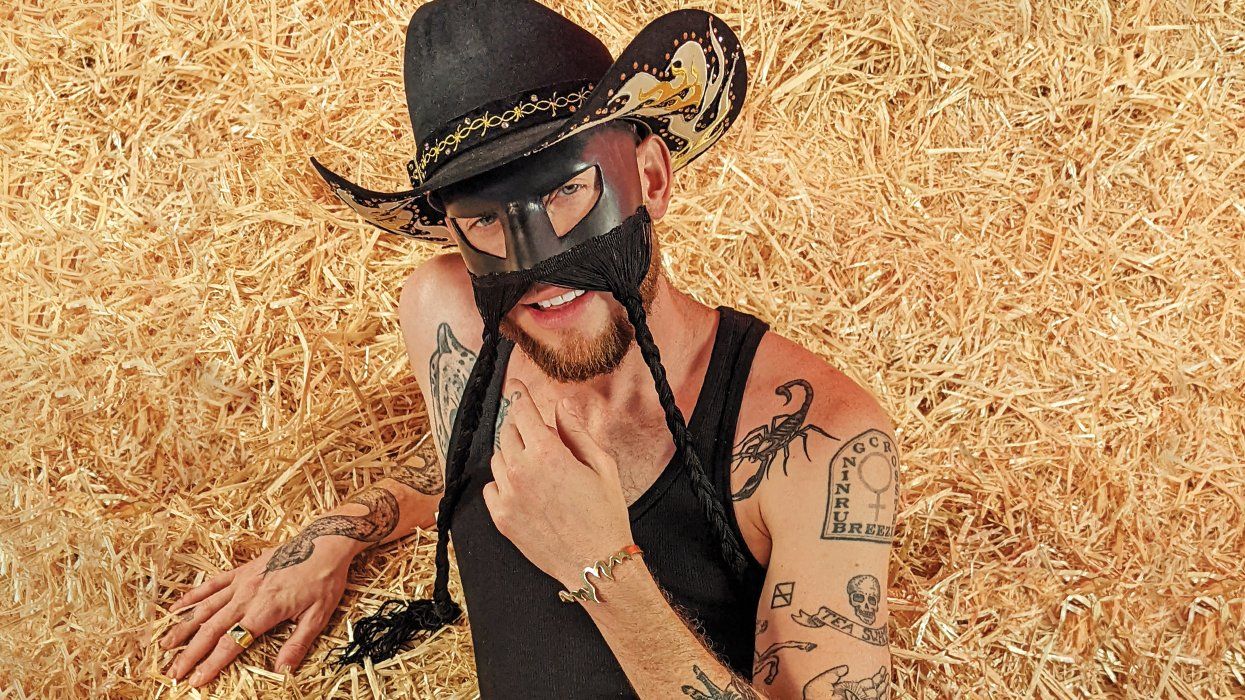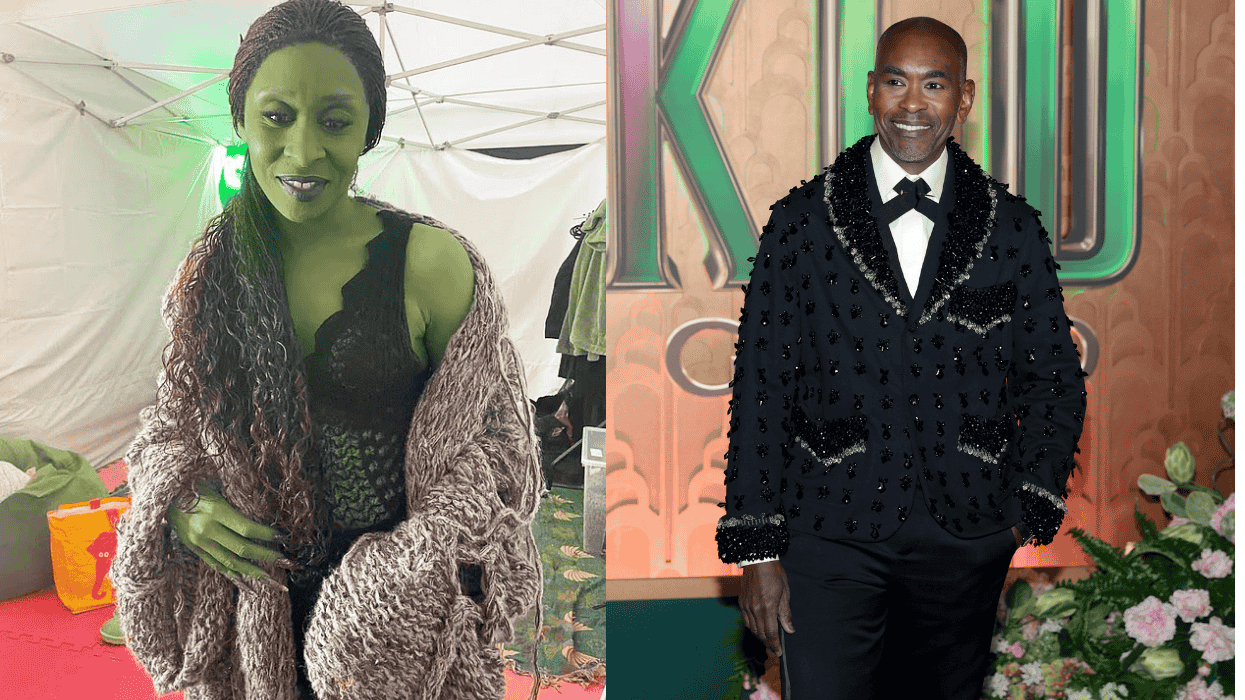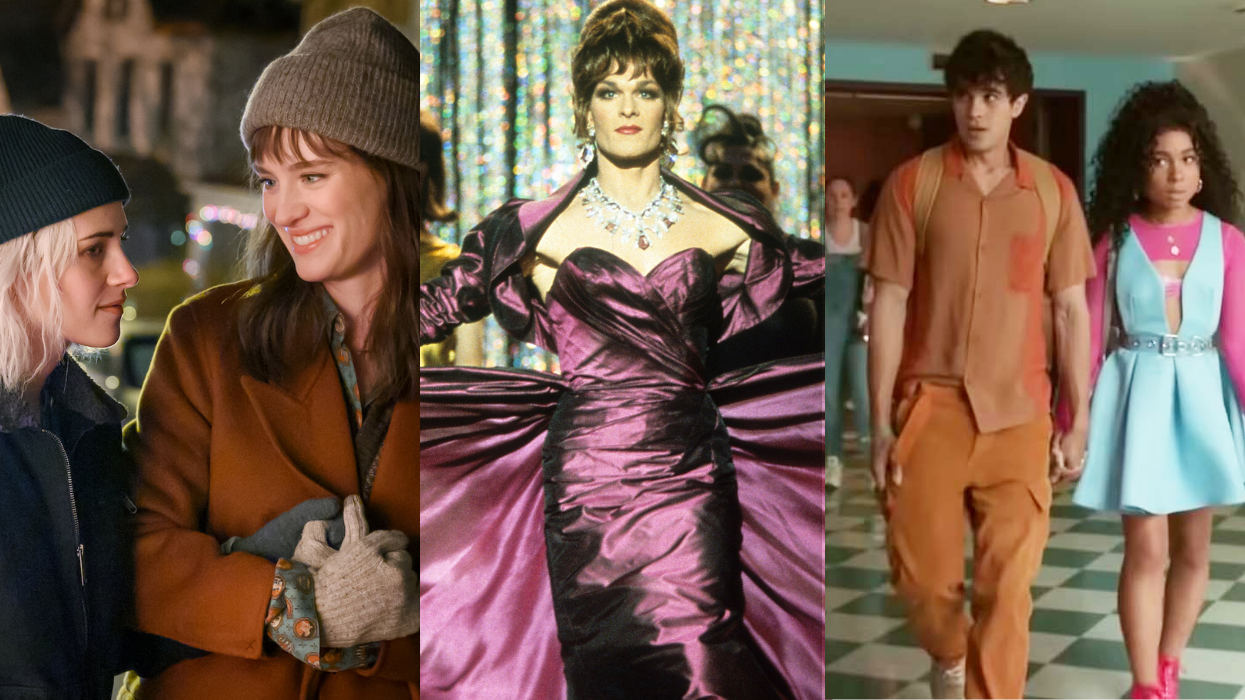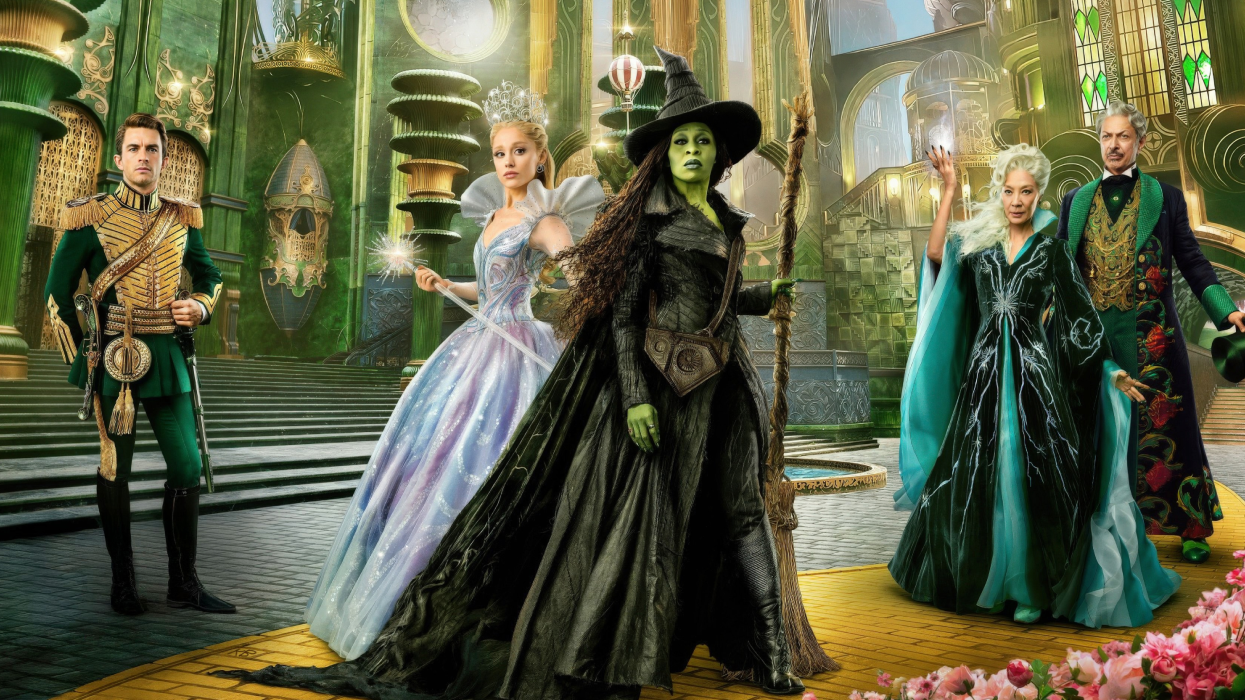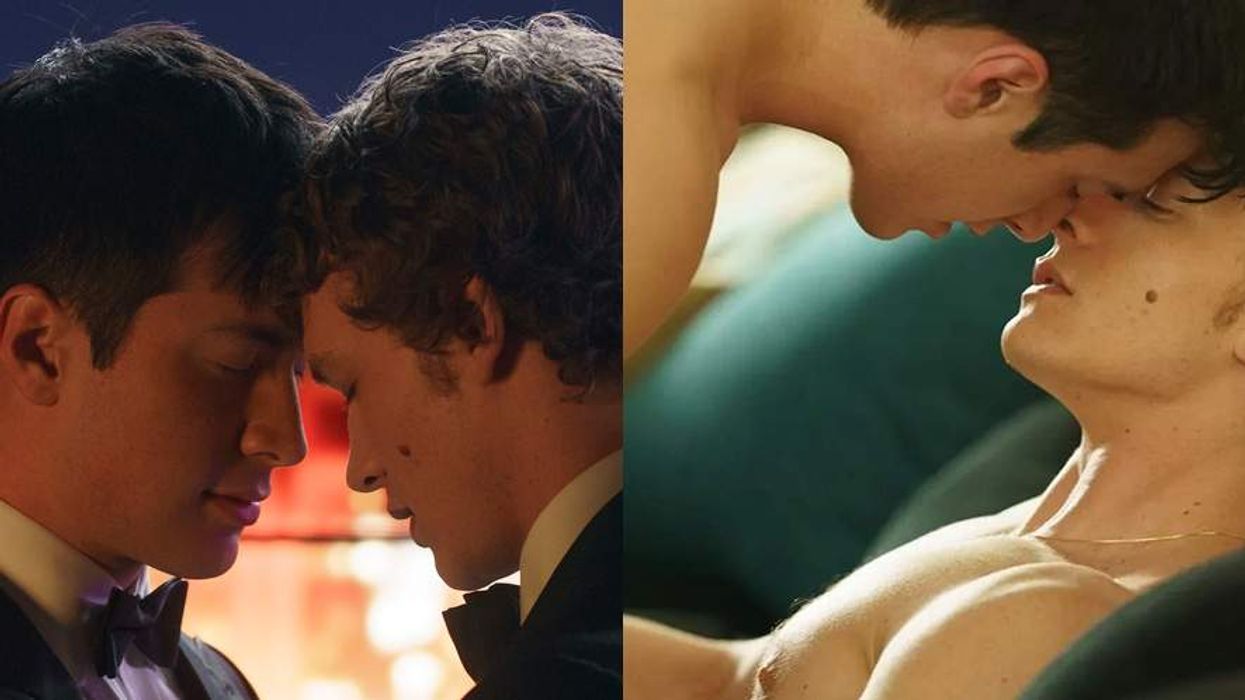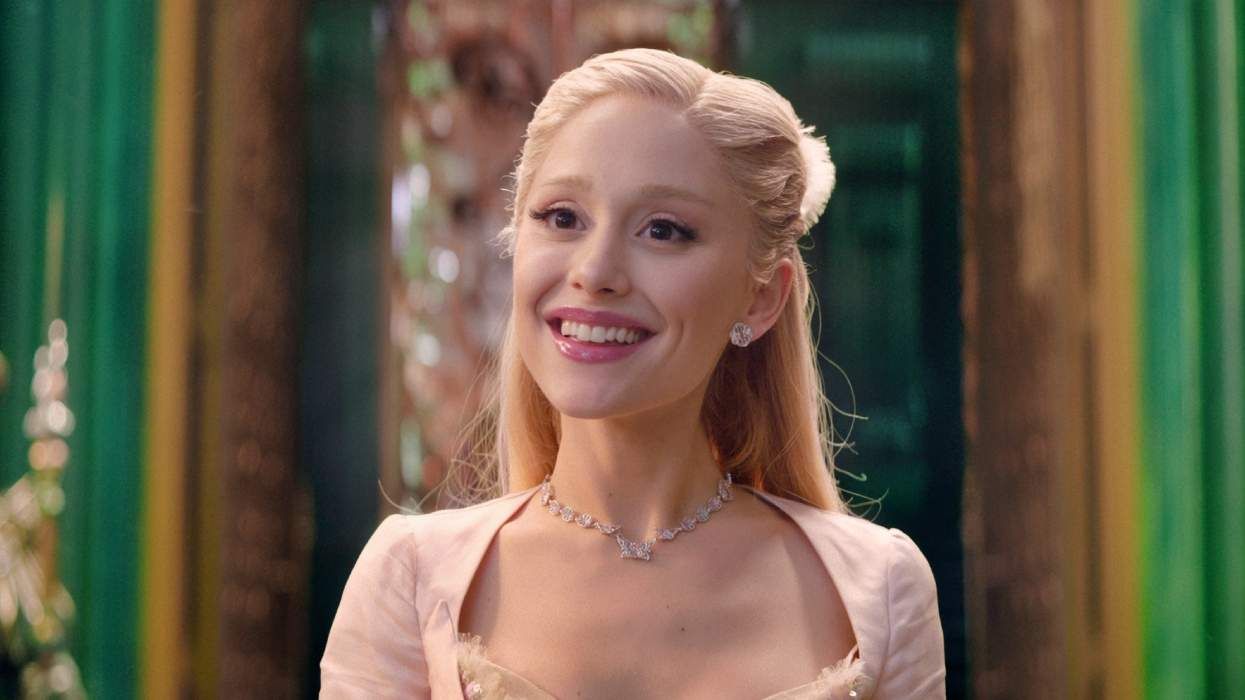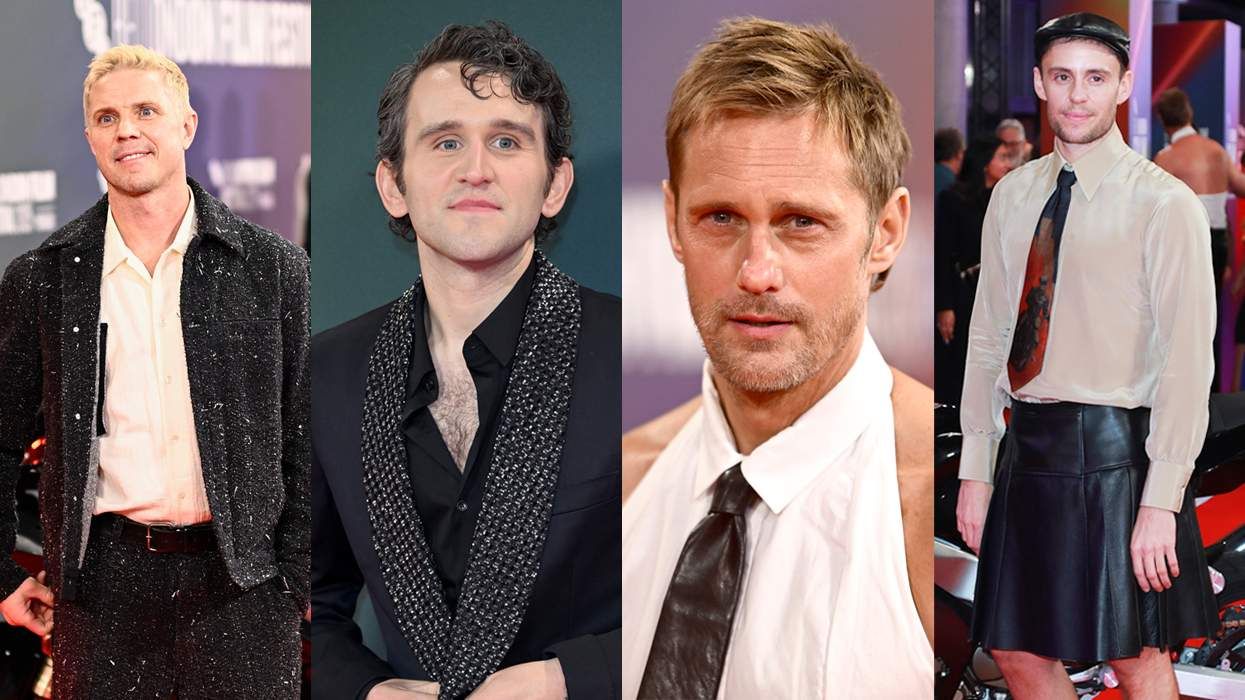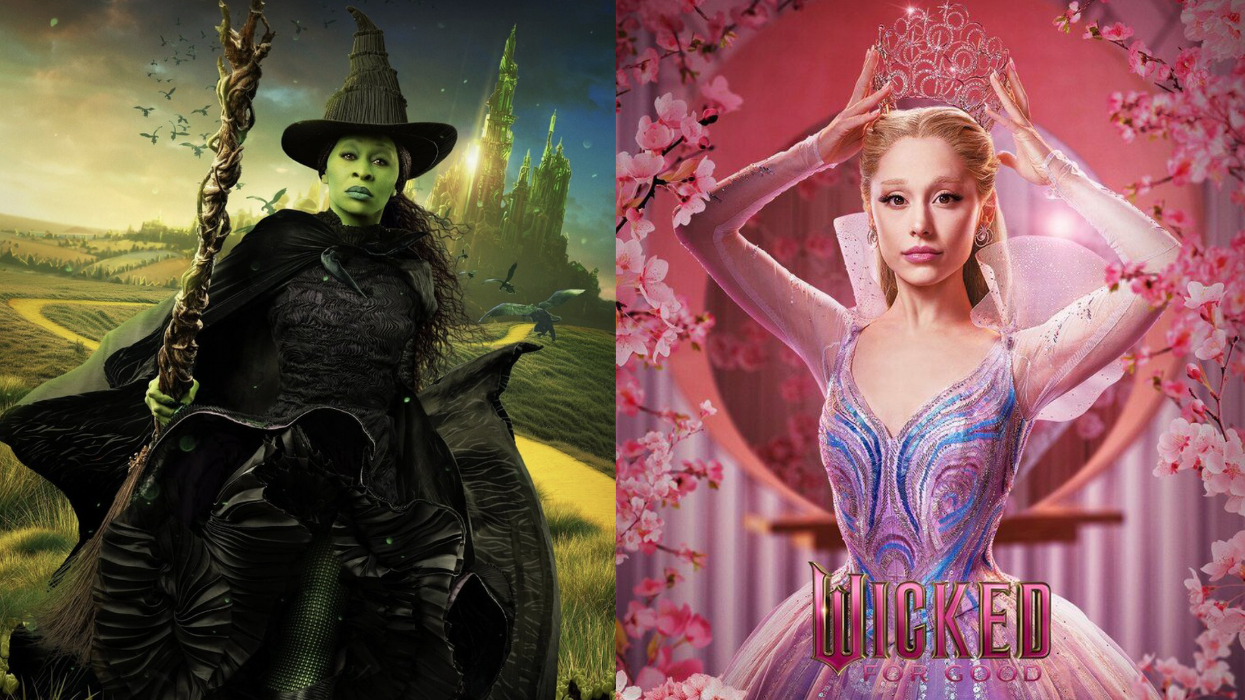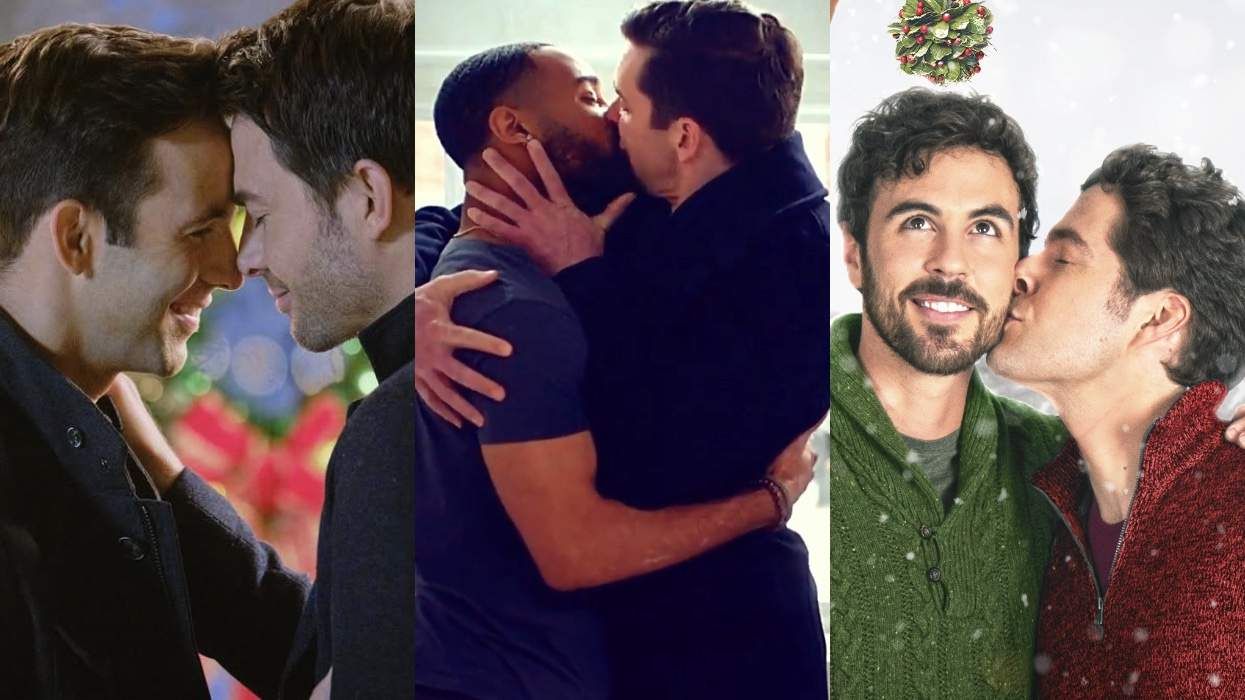Photography by Tony Kelly | Styling by Alison Brooks. Grooming by Sydney Zibrak Wall Group.
Jacket by Topman. Scarf by Marc Jacobs. Black diamond lightning bolt necklace by Juliana Shaya for Jet John Eshaya. Black necklace by H&M.
"It takes a lot more balls to wear a dress than to wear a suit."
In the wake of a scene that features a speech about gay assimilation, this is what Stonewall's lead character, Danny (Jeremy Irvine), says to his crush, Mattachine member Trevor (Jonathan Rhys Meyers), while defending his best friend, Ray. An androgynous street kid and hustler, Ray (Jonny Beauchamp) lives within shouting distance of the titular bar and gay landmark, and he occasionally graces its crimson-lit rooms in sparkly, strapless numbers. The point-blank statement is also apt for Beauchamp himself, a young actor still unknown to many who is doing anything but assimilating with the roles he's tackling.
To date, Beauchamp's three key performances are all queer and bend gender. Ray, loosely modeled after the late Ray Castro -- reportedly the only widely known gay person to be arrested on the first night of the Stonewall riots -- is a slinky firebrand still coming to terms with his gender identity, using feminine pronouns and strutting in drag to the tune of Shocking Blue's "Venus." Angelique, Beauchamp's character on season 2 of Showtime's Penny Dreadful, is a trans courtesan in Victorian England who has a full-on, Crying Game-style reveal in her debut episode, and carries on a torrid affair with try-sexual Dorian Gray (Reeve Carney). And Beauchamp has also taken on Scott Townsend, another fact-based figure, in the forthcoming Thirsty, a musical biopic about Townsend's life as a drag queen and Cher impersonator. In an industry where handlers notoriously tug at the reins while shaping newcomers' images, it's a wondrous rarity to see someone like Beauchamp, 26, serially go his own way.
"I would tell any [actor] out there working to really consider what they're saying no to and why," he says, "and I hope I can inspire people to take on more risky roles. I think we should constantly push our boundaries and bring more visibility to equality. For whatever reason, I have a true connection to these characters, and to me it's not only about their gender or sexual orientations -- it's about the stories and the social commentary. Because the truth is, if they weren't homosexual, or transgender, or prostitutes, we might not be having this conversation."
Born in the Bronx but raised and schooled in upstate New York (his mother insisted on the "best public schools" outside the city), Beauchamp was daunted by moving around and being the new kid. Until he wasn't. "I was shy, but I never really got far being shy," he says. "And once I started saying 'fuck it' and just living my truth and being myself, I found strength in that." That was when he was around 14, about the same time he discovered the film Fame (which prompted him to beg his mom to move back to the city so he could study performing arts) and the stage production of Cabaret (with its "unapologetic, electric" characters).
Naturally, Beauchamp's interests, vanguard career choices, and bold self-branding draw out the inevitable question: Does he identify as queer? "Sure," he says. "I'm not really interested in labels, especially as an artist, but I'm open to all experiences. I do like to keep a little bit of a private life, and I'm more drawn to the old Hollywood idols who had a little more privacy. But I think in this day and age a lot of people are open to more experiences."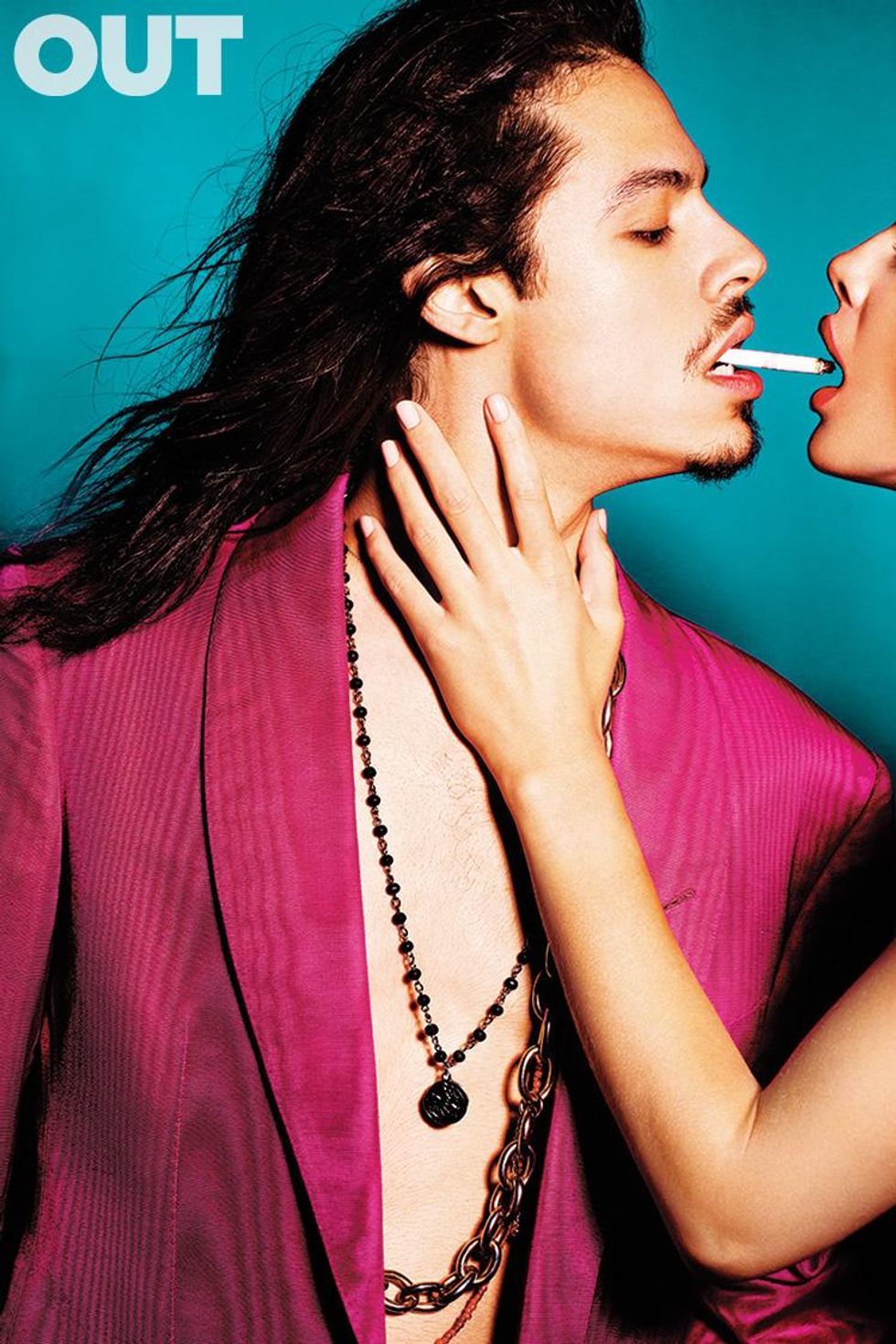
The benefit of Beauchamp's openness is twofold. Whatever he's taking in is enriching him and his worldview, and it's also creating a direct emotional line to his audience.
There's no mistaking that he's the runaway star of Stonewall, Roland Emmerich's epic, which leads up to that fateful night on June 27, 1969, and sees Beauchamp stealing every last scene he's in, whether it's an outdoor assertion of power that literally stops traffic or a wrenching, tearful monologue about being a queer youth with no family. Similarly, there's a lonely ache to Beauchamp's portrayal of Angelique, who carries herself with poise and mystique, yet struggles with being trans in a time when many weren't even ready to begin unpacking the idea.
"It's almost like I'm a radio," Beauchamp says. "You can turn the volumes of certain character traits up or down to tell the truth and live in those circumstances. Angelique, for instance, is all about fitting in and staying low, while Ray is a lot louder. But both, while very alone, are wholeheartedly themselves, and I can relate to that. They might be the same radio station, but at completely different hours of the day."
Stonewall opens in theaters September 25. Watch the trailer below:



